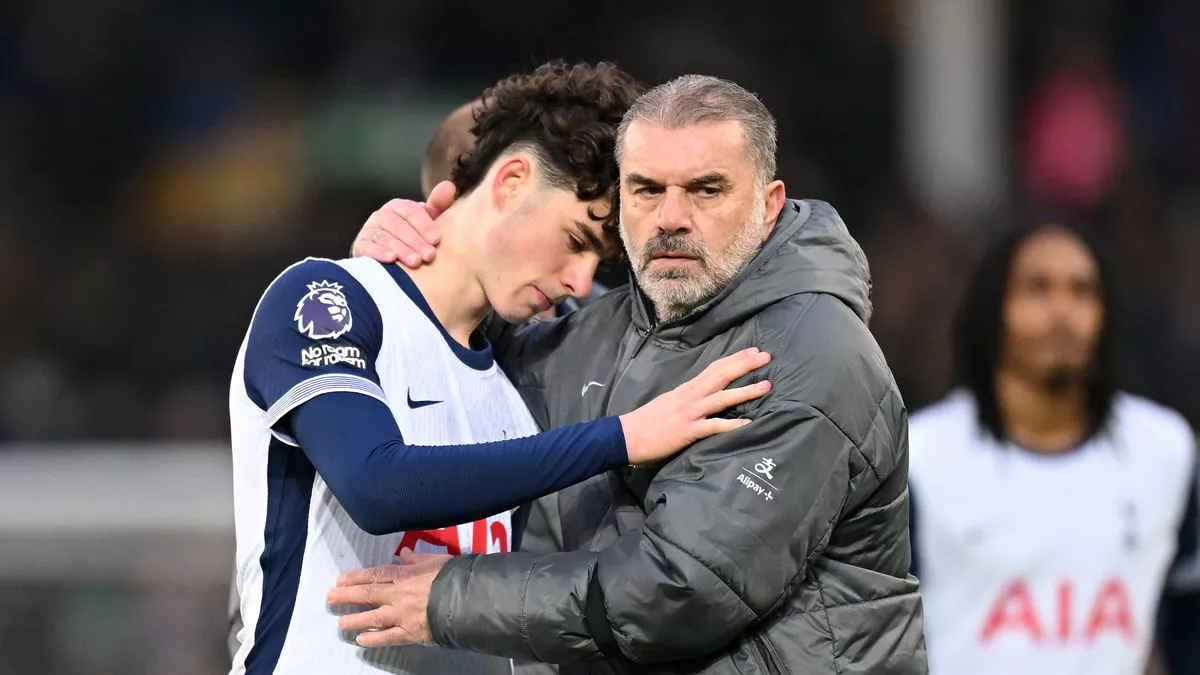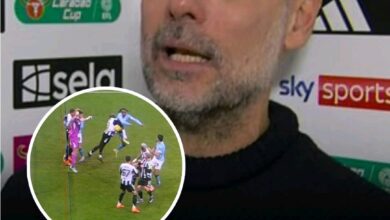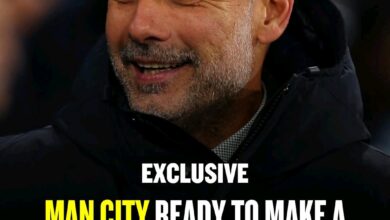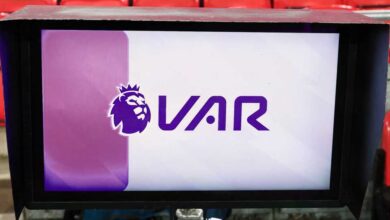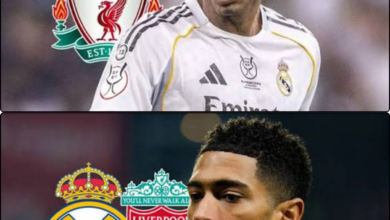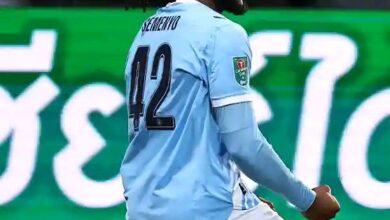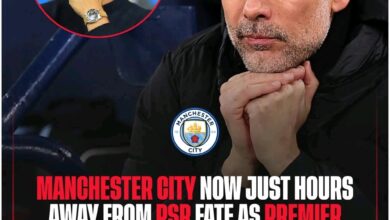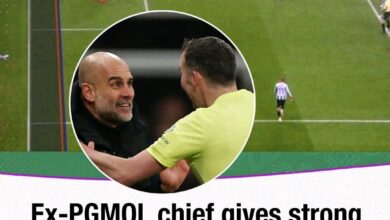Three things that will ‘definitely’ happen to Arsenal if Ange Postecoglou is sacked by Tottenham
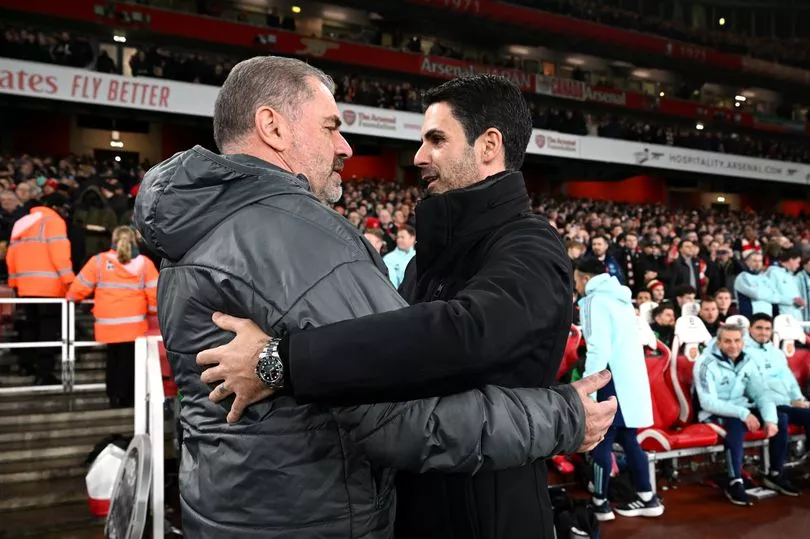
The North London rivalry has always been one of the most intense in English football. The recent developments surrounding Tottenham Hotspur and their head coach, Ange Postecoglou, have brought Arsenal into the spotlight once again. As of January 2025, Postecoglou’s position as Tottenham’s manager is under significant scrutiny following a string of poor results, with the latest defeat to Everton pushing Spurs further down the Premier League table. Despite leading Spurs to a semi-final in the League Cup, the defeat at Everton could well be the tipping point for the Australian manager’s tenure.
This situation raises important questions about how the North London derby and, by extension, the competitive landscape of the Premier League, might change if Postecoglou were to be dismissed. Arsenal, under Mikel Arteta, have enjoyed a period of relative success and stability in recent seasons, but Postecoglou’s potential departure could significantly impact their fortunes in a number of ways. In this piece, we explore three things that will likely happen to Arsenal should Spurs decide to part ways with their manager.
Mikel Arteta’s Arsenal have dominated the recent North London derbies, particularly in their matchups against Postecoglou’s Tottenham. Arteta boasts a strong record over the Australian manager, having won three out of four matches, with only one draw interrupting their otherwise perfect head-to-head record. The first encounter, which ended in a 1-1 draw, was a frustrating result for Arsenal, as it came about due to a crucial mistake by Jorginho in the second half. However, the subsequent victories in the Premier League and other competitions have seen Arsenal take control of the rivalry in recent years.
A key question arises if Postecoglou is dismissed and a new manager comes in to take charge of Tottenham: can they change the tide of the derby? A new head coach would almost certainly bring in fresh ideas and tactics, potentially shaking up the dynamics of the rivalry. While a change in management typically leads to a “bounce” in team performance—a temporary surge in results—the extent to which this would impact the outcome of future derbies remains to be seen.
It is also worth considering that the gap between the two clubs in terms of squad quality and Arteta’s progressive style of play is still significant. Even with a new manager at the helm, it may take some time for Tottenham to bridge this gap, especially as they are currently sitting 15th in the Premier League, well behind Arsenal, who are in contention for top honors. The managerial change could indeed make the derbies more competitive, but it is not guaranteed that a new coach would immediately close the gap between the two teams.
Furthermore, the instability in Tottenham’s managerial situation could continue to play into Arsenal’s hands, as Arteta’s clear vision and stable squad have made them more formidable opponents. In the short term, Arsenal may still hold a significant advantage in the derby.
One of the immediate effects of a managerial change at Tottenham could be a re-evaluation of their season and potential improvement in form. When a new coach comes in, there is often a period of rejuvenation as players respond to fresh ideas and renewed focus. This has been a common trend in football; a new manager usually brings a renewed sense of energy to the squad, even if the long-term improvements take time to manifest.
Despite their struggles this season, it is highly unlikely that Tottenham will continue to spiral downward into a relegation battle. In fact, if a new manager arrives, there could be an upturn in their performances, albeit not necessarily immediate. While Arsenal have been strong this season, sitting near the top of the table, it is conceivable that Tottenham could recover some ground under a new manager’s influence, particularly given that the teams above them are also susceptible to fluctuation.
The gap between Arsenal and Tottenham, which currently stands at 13 points, would likely close as a result of this managerial change. However, whether this would see Spurs immediately return to the upper echelons of the Premier League is another matter entirely. The new manager would need to make significant improvements, especially given the competitive nature of the league this season. Nevertheless, it would be unrealistic to expect a new coach to lead Tottenham to instant success or challenge Arsenal for a top-four finish without substantial time for rebuilding.
What seems more likely is that Tottenham, once their managerial situation stabilizes, will start improving their league position, potentially closing the gap by the end of the season. The result might not be enough to place them back in a top-four race, but it would likely see them climb closer to mid-table, which would ease the pressure on the club and its supporters. From Arsenal’s perspective, while the rivalry may not become more competitive right away, it’s almost certain that Tottenham will not remain in the relegation battle indefinitely.x
One of the more intriguing outcomes of a managerial change at Tottenham would be the tactical adjustments that a new coach would bring to the North London rivalry. Postecoglou’s philosophy, while admirable for its commitment to an attacking style, has not yielded the expected results at Spurs. If he were replaced, it could signal a shift in Tottenham’s approach, which could create a new challenge for Mikel Arteta and Arsenal.
Historically, Spurs have been a club that has seen various tactical experiments, from Jose Mourinho’s defensive solidity to Antonio Conte’s pragmatic, counter-attacking style. Both of these managers were able to cause problems for Arteta’s Arsenal, particularly during key matches. Should a new manager come in, such as Edin Terzic or Andoni Iraola—both names reportedly linked to the role—there could be a shift in how Tottenham approaches matches against Arsenal.
Edin Terzic, the former Borussia Dortmund manager, is known for his progressive style of play, similar to Arteta’s in some respects. His tactical flexibility and emphasis on high pressing and positional play could create an interesting tactical battle between two managers who share similar philosophies. Andoni Iraola, another Basque coach, has already proven his tactical nous by masterminding a victory against Arteta’s Arsenal with his Rayo Vallecano side earlier this season. Iraola’s tactical approach could offer a fresh challenge to Arteta and force Arsenal to rethink how they approach matches against Tottenham.
A managerial change would likely reinvigorate Tottenham’s approach to games against Arsenal, and the rivalry could develop in new, exciting ways. As the two clubs continue to develop their respective projects, the emergence of a new tactical rivalry between Arteta and the new Tottenham manager could provide an intriguing subplot to the ongoing North London Derby.
The prospect of Ange Postecoglou being sacked by Tottenham Hotspur raises several questions about the future dynamics between Arsenal and their North London rivals. While Arsenal have dominated their recent encounters, a managerial change at Spurs could bring about a shift in the balance of power. Though the immediate impact may not be substantial, a new coach at Spurs could reinvigorate their squad, narrow the gap between the two clubs, and present a fresh tactical challenge for Arteta’s Arsenal.
Arsenal will need to remain focused on their own objectives, regardless of Tottenham’s situation. If Postecoglou departs, it will undoubtedly alter the nature of the rivalry, but Arteta’s Arsenal project remains strong, and their focus should be on continuing their progress toward competing for major honors. In the long run, the evolution of the North London Derby, with a potential new manager at Spurs, will be something to watch closely, as it could reignite one of the most thrilling rivalries in English football.




